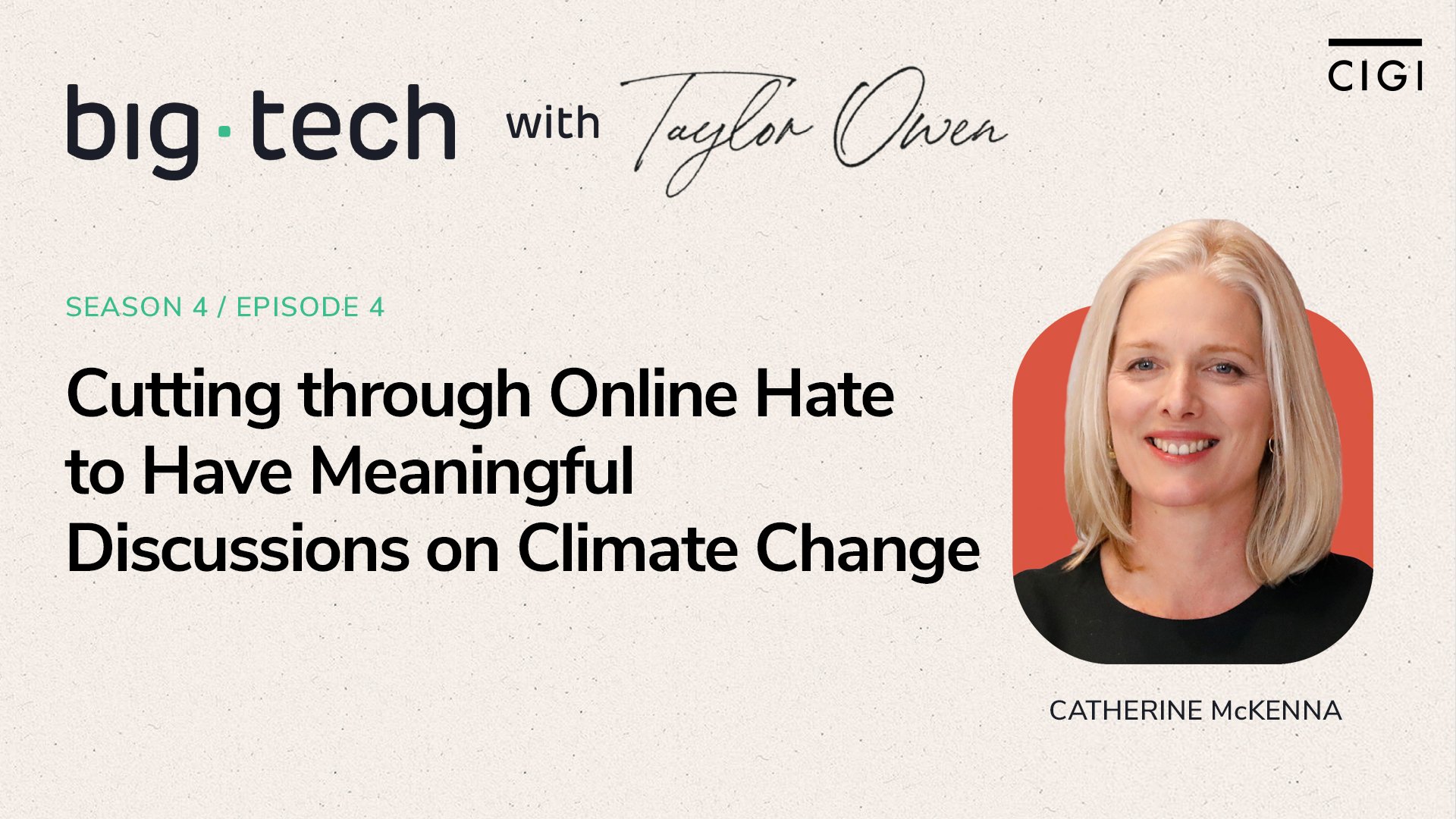Big Tech S4E4: Catherine McKenna on Cutting through Online Hate to Have Meaningful Discussions on Climate Change
December 16, 2021
Listen to this week’s new episode of Big Tech, where Taylor speaks with Catherine McKenna, Canada’s Minister of environment and climate change from 2015 to 2019, about the online harassment she experienced over her time in politics, and how it makes meaningful dialogue on what to do about climate change and tech governance almost impossible.
Social media has become an essential tool for sharing information and reaching audiences. In the political realm, it provides access to constituents in a way that going door to door can’t. It also provides a platform for direct access to citizens without paying for advertising or relying on news articles. We’ve seen how Donald Trump used social media to his advantage, but what happens when social media turns on the politician?
In this episode of Big Tech, Taylor Owen speaks with Catherine McKenna, Canada’s minister of environment and climate change from 2015 to 2019. McKenna’s experience with online hate is not unique; many people and groups face online harassment and, in some cases, real-world actions against them. What does make McKenna’s case interesting is the convergence of online harassment on social media and the climate change file. In her role as minister, McKenna was responsible for implementing the federal government’s environmental policy, including the Paris Agreement commitments, carbon pricing and pipeline divestment. No matter what she said in her social posts, they were immediately met with negative comments from climate change deniers. Attacks against her escalated to the point where her constituency office was vandalized and a personal security detail was assigned to her.
Finding solutions to climate change is complicated, cross-cutting work that involves many stakeholders and relies on dialogue and engagement with government, industry and citizens. McKenna found that the online expression of extremism, amplified by social media algorithms, made meaningful dialogue all but impossible. McKenna, no longer in politics, is concerned that the online social space is having negative impacts on future youth who may want to participate in finding climate solutions. “I’ve left public life not because of the haters, but because I just want to focus on climate change. But…I want more women to get into politics. I want broader diversity. Whether you’re Indigenous, part of the LGBTQ+ community, or a new immigrant, whatever it is, I want you to be there, but it needs to be safe.” Which raises the question: To find climate solutions, must we first address misinformation and online hate?

